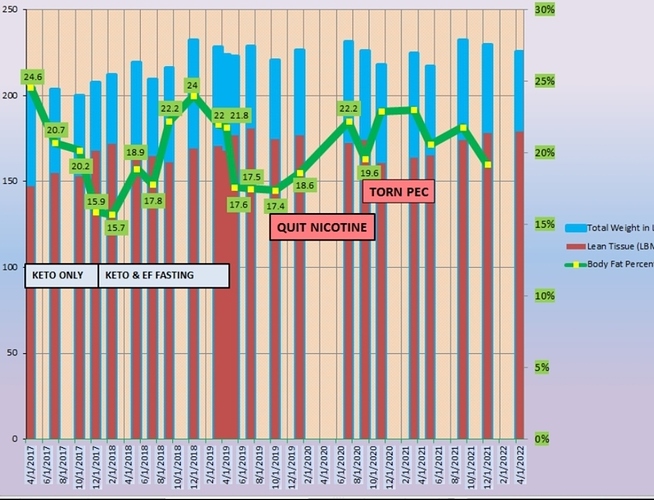Yeah, one of the fundamental tenets of science is you have to control one variable at a time holding all else equal (ceterus paribus). And you need to run experiments to their well-conceived terminal exit points to ensure you’ve captured the extent of any effect - expected or unexpected.
In truth, you cannot perform self-science this way. There are simply far too many other variables out of your control (stress, sleep, travel, illness, …), including the lingering or delayed effects of what you’ve done prior to the change you’re exploring.
But to the extent you can refrain from making too many changes all at the same time, you lower the difficulties put on your body to make adaptations dealing in response to too many inter-related variables wobbling around at the same time.
[Disclaimer: I rarely follow this advice. I tend to mess with a whole bunch of things at once and try to figure out what sticks. Since my “terminal exit” point is death, I don’t feel I have time to waste.  ]
]


